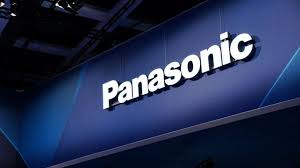SEC Settles FCPA Charges Against Ex-Panasonic Avionics Officers

On December 19, 2018, the SEC announced settlements with two former senior executives of Panasonic Avionics Corporation.
In April 2018, Panasonic Avionics settled FCPA charges with the Justice Department and the SEC and agreed to pay $280 million. (Here)
Paul Margis (Here), the former CEO, and Takeshi Uonaga (Here), the former CFO, agreed to pay $75,000, and $50,000 respectively, to settle books and records and internal controls charges. Margis left the company in 2017.
Between 2006 and 2017, Margis authorized the payment of $184 million in sales commissions to a Sales Representative who reported directly to him and who had no experience in the in-flight entertainment industry.

The Sales Representative lacked qualifications but participated in many sales negotiations and often had confidential and proprietary information about Panasonic Avionics’ competitors.
According to the administrative order, Margis with the assistance of the Sales Representative, authorized the hiring of a government official at a state-owned government airline for a consulting position, while the foreign official was involved in the negotiation of two agreements with Panasonic Avionics for in-flight entertainment systems. The consulting position was provided as a naked bribe to the government official who was not required to provide any consulting services. In total, the government official received approximately $875,000 in consulting fees for little to no consulting services.
In addition to this corrupt consulting deal, Margis authorized payments of more than $900,000 through a third-party vendor to retain two other individuals as consultants, even though they provided little to no services. Margis made such payments from a fund maintained in the Office of the President at Panasonic Avionics.
Over a seven-year period, from 2007 to 2014, Margis and others authorized engagement of various consultants where the consultants provided little to no services. Margis caused the retention of these agents by circumventing Panasonic Avionics’ standard procedures and hiring the consultants through a vendor. Margis controlled the Office of President budget and made payments to these consultants through the vendor.
Margis’ budget was set annually by a senior finance executive. Panasonic Avionics conducted no meaningful audit or review of expenditures from this account and there were no reasonable accounting controls in place governing such expenditures.
One of the consultants provided Margis and others with non-public information regarding an airline customer, other customers and competitors. The other consultant was hired and paid to ensure that the consultant did not work for any of Panasonic Avionics’ competitors.

In total, Margis authorized payments totaling more than $176 million to the government official, and the two consultants, from the Office of the President budget. Margis knowingly circumvented Panasonic Acvionics’ policies and procedures governing the retention of consultants, including the scope of work, coordinating with Panasonic’s Human Resources department, and limiting such contracts to six months.
Uonaga was fired from Panasonic Avionics in 2018. As explained in his settlement, Uonaga caused the parent company to improperly record $82 million in revenue based on a backdated contract. He also made false representations to Panasonic Avionics’ auditor about financial statements, internal controls and books and records.
The status of the Justice Department’s investigations of Margis and Uonaga is unknown.















